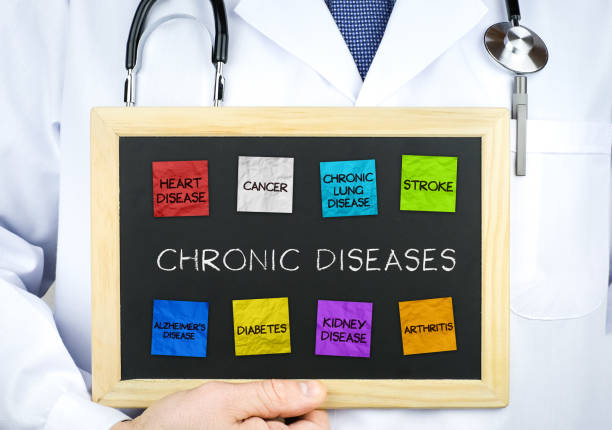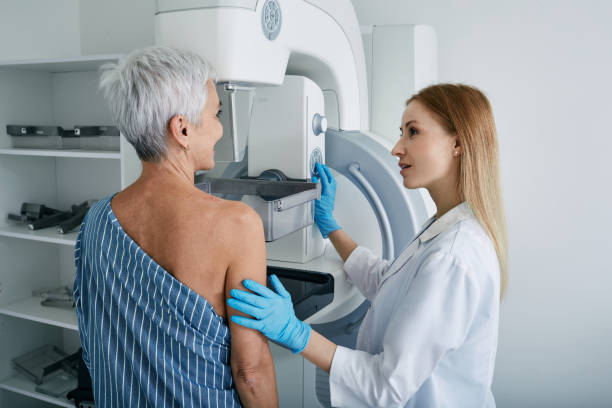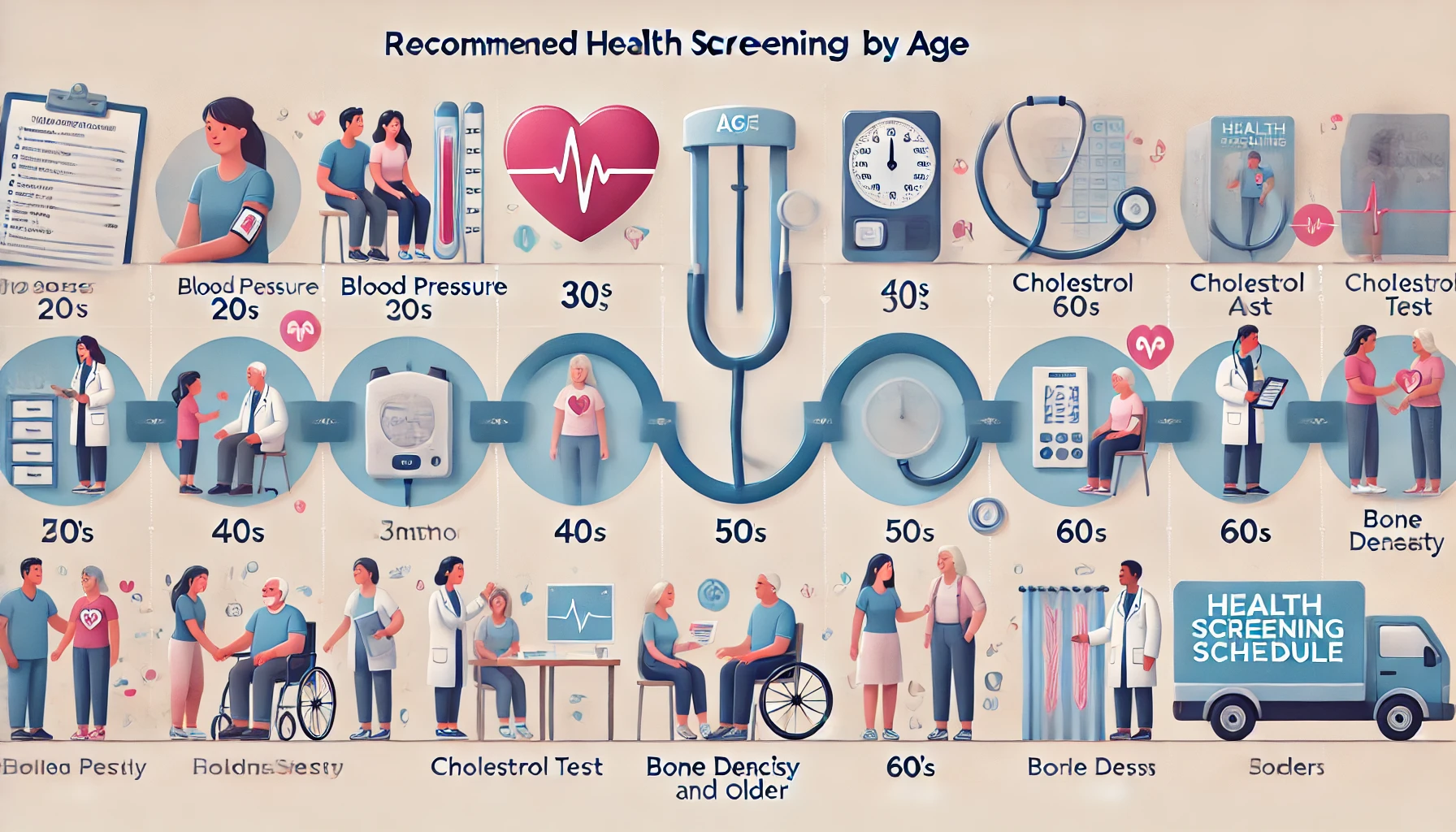In the modern era of healthcare, prevention has become a cornerstone of well-being. With chronic diseases such as diabetes, heart disease, and cancer continuing to pose significant threats to global health, the importance of regular health screenings cannot be overstated. These screenings offer a scientific and practical way to detect potential issues before they develop into serious health conditions.
This article explores how regular health screenings act as a shield against chronic diseases, drawing on evidence-based insights and actionable recommendations to empower you to live a healthier, longer life.
The Silent Threat of Chronic Diseases

Chronic diseases are long-term conditions that progress slowly, often without noticeable symptoms in the early stages. Common chronic diseases include:
- Cardiovascular Diseases: Heart attacks, strokes, and high blood pressure.
- Diabetes: A metabolic disorder that disrupts blood sugar regulation.
- Cancer: Uncontrolled cell growth that can occur in various organs.
- Respiratory Diseases: Conditions like asthma and chronic obstructive pulmonary disease (COPD).
The Impact on Global Health
According to the World Health Organization (WHO), chronic diseases are responsible for nearly 70% of deaths globally, with a substantial portion of these deaths being preventable. Factors such as sedentary lifestyles, unhealthy diets, smoking, and stress contribute to their prevalence.
Key Statistics:
- Cardiovascular diseases claim over 17.9 million lives annually.
- Diabetes affects more than 500 million people worldwide, many of whom are undiagnosed.
- Early cancer screenings can reduce mortality by up to 50% for certain cancers.
Preventing chronic diseases isn’t just about treatment—it’s about identifying risks before they manifest.
What Are Health Screenings?

Health screenings are systematic tests performed to detect diseases or risk factors in their earliest, most treatable stages. They are vital for staying proactive about your health, especially when it comes to chronic diseases that often develop silently.
Types of Health Screenings
Here is an expanded list of health screenings to provide a comprehensive overview, covering additional screenings for various conditions:
1. Blood Tests
- Complete Blood Count (CBC): Evaluates overall health and detects conditions like anemia or infections.
- Lipid Profile: Measures cholesterol and triglyceride levels for cardiovascular health.
- Blood Glucose Test: Detects diabetes or prediabetes.
- Liver Function Tests: Checks for liver damage or disease.
- Kidney Function Tests: Assesses creatinine and blood urea nitrogen (BUN) levels for kidney health.
- Thyroid Function Tests (T3, T4, TSH): Identifies thyroid imbalances such as hypothyroidism or hyperthyroidism.
- Vitamin and Mineral Tests: Screens for deficiencies in Vitamin D, B12, iron, or other nutrients.
- C-reactive Protein (CRP): Detects inflammation that could signal chronic disease risks.
2. Imaging Tests
- Mammograms: Detects early-stage breast cancer.
- Ultrasounds: Visualizes organs to identify abnormalities like cysts, fibroids, or gallstones.
- X-rays: Useful for diagnosing bone fractures or detecting lung issues like pneumonia.
- CT Scans: Provides detailed cross-sectional images of internal organs to diagnose cancers, infections, or blood clots.
- MRI (Magnetic Resonance Imaging): Non-invasive imaging for detecting abnormalities in soft tissues like the brain, spinal cord, or joints.
- Bone Density Scan (DEXA): Identifies osteoporosis or low bone mass, particularly in postmenopausal women.
3. Cardiovascular Assessments
- Electrocardiograms (ECGs/EKGs): Monitors heart rhythm and detects conditions like arrhythmias.
- Stress Tests (Treadmill Test): Assesses how the heart responds to physical stress.
- Echocardiogram: Uses ultrasound to evaluate heart function and detect structural abnormalities.
- Carotid Ultrasound: Checks for blockages or narrowing in the carotid arteries, reducing stroke risk.
- Ankle-Brachial Index (ABI): Detects peripheral artery disease by measuring blood flow to the limbs.
4. Cancer Screenings
- Pap Smear and HPV Test: Detects cervical cancer and assesses HPV infection risk.
- Colonoscopies: Identifies polyps or early-stage colorectal cancer.
- PSA Test (Prostate-Specific Antigen): Screens for prostate cancer in men.
- Low-Dose CT Scan for Lung Cancer: Recommended for individuals with a history of heavy smoking.
- Skin Cancer Screening: Visual examination by a dermatologist to detect melanoma or other skin cancers.
- BRCA Genetic Testing: Identifies genetic predispositions to breast and ovarian cancers.
5. Respiratory Screenings
- Pulmonary Function Tests (PFTs): Measures lung capacity and function to diagnose asthma, COPD, or other respiratory conditions.
- Spirometry: Evaluates airflow and detects lung diseases like chronic bronchitis or emphysema.
6. Infectious Disease Screenings
- HIV/AIDS Testing: Detects HIV infection early for prompt treatment.
- Hepatitis B and C Testing: Identifies liver infections that can lead to chronic disease.
- Tuberculosis (TB) Test: Detects latent or active tuberculosis infection.
- Sexually Transmitted Infection (STI) Screenings: Includes tests for syphilis, gonorrhea, chlamydia, and herpes.
7. Neurological Screenings
- Cognitive Assessments: Detects early signs of Alzheimer’s or other forms of dementia.
- Carotid Doppler Ultrasound: Evaluates blood flow to the brain, reducing the risk of stroke.
8. Vision and Hearing Screenings
- Eye Exam: Detects vision problems, cataracts, glaucoma, and macular degeneration.
- Audiometry Test: Evaluates hearing ability and detects hearing loss.
9. Dental and Oral Health Screenings
- Dental X-rays: Detects cavities, gum disease, and other oral health issues.
- Oral Cancer Screening: Identifies precancerous or cancerous conditions in the mouth and throat.
10. Mental Health Screenings
- Depression and Anxiety Assessments: Helps identify mental health disorders for timely treatment.
- Substance Use Screening: Assesses the risk of alcohol or drug dependency.
11. Pregnancy-Related Screenings
- Prenatal Blood Tests: Checks for anemia, gestational diabetes, or infections during pregnancy.
- Ultrasounds: Monitors fetal growth and detects abnormalities.
- Genetic Screening: Tests for chromosomal conditions like Down syndrome.
These comprehensive screenings form the backbone of preventive healthcare, helping detect health risks early and ensuring timely interventions. Regularly consulting with a healthcare provider to personalize your screening plan based on your age, gender, lifestyle, and medical history can lead to better health outcomes.
How Regular Health Screenings Help Prevent Chronic Diseases

1. Early Detection Saves Lives
Health screenings identify diseases in their infancy, long before symptoms appear. For example:
- Hypertension: Regular blood pressure checks can reveal high blood pressure, which is a major risk factor for strokes and heart attacks.
- Cancer: Mammograms can detect breast cancer years before a lump is noticeable, improving survival rates significantly.
- Diabetes: Screening for prediabetes enables lifestyle changes that prevent full-blown diabetes.
Scientific Insight: Research published in the New England Journal of Medicine found that individuals who undergo regular screenings have a 30% higher survival rate for chronic diseases compared to those who don’t.
2. Targeting Risk Factors
Regular screenings allow doctors to monitor and manage risk factors before they escalate. For instance:
- Elevated cholesterol levels detected through a lipid profile test can prompt dietary changes and medication to prevent heart disease.
- Persistent inflammatory markers such as C-reactive protein (CRP) can be an early warning for autoimmune conditions or cardiovascular risk.
3. Preventing Long-Term Complications
By catching diseases early, screenings help prevent the cascade of complications that come with untreated conditions. For example:
- Controlling high blood sugar early can prevent diabetic neuropathy, kidney failure, and blindness.
- Treating high blood pressure prevents damage to arteries, kidneys, and the brain.
Benefits of Regular Screenings

1. Reduced Healthcare Costs
Early detection of chronic diseases often results in less invasive, less expensive treatments. Preventive care significantly lowers the financial burden on patients and healthcare systems.
Fact: A study by the Centers for Disease Control and Prevention (CDC) shows that every dollar spent on preventive screenings saves $3-$5 in long-term healthcare costs.
2. Improved Quality of Life
Screenings detect issues early, enabling interventions that help individuals maintain an active and healthy lifestyle. For example, managing prediabetes through exercise and diet can prevent the progression to diabetes, ensuring long-term vitality.
3. Peace of Mind
Knowing that your health is under control can alleviate anxiety and encourage healthier lifestyle choices.
Chronic Diseases Prevented by Screenings

1. Heart Disease and Stroke
Cardiovascular screenings, including cholesterol tests and blood pressure monitoring, can detect risks early. Coupled with lifestyle modifications, this reduces the likelihood of heart attacks and strokes.
Science Insight: A study in the American Heart Association Journal revealed that lowering cholesterol levels by 1% through early screening reduces heart disease risk by 2-3%.
2. Diabetes
Regular blood sugar tests detect prediabetes, allowing timely interventions like dietary changes and weight management to prevent progression.
Case Study: The Diabetes Prevention Program (DPP) found that lifestyle changes reduced Type 2 diabetes risk by 58% in at-risk individuals.
3. Cancer
Cancer screenings like colonoscopies, mammograms, and Pap smears detect abnormal growths or changes in cells before they become life-threatening.
Fact: According to the National Cancer Institute, colorectal cancer screenings reduce mortality rates by 50%.
Recommended Screening Schedule

General Guidelines (By Age):
Health screening recommendations vary based on age, gender, medical history, and risk factors. Below is a comprehensive and science-based guide to regular health screenings, incorporating the latest guidelines from trusted organizations like the CDC, WHO, and medical associations.
In Your 20s and 30s (Focus on Building a Baseline)
At this stage, screenings are mostly preventive, aimed at detecting early signs of health issues and establishing baselines for future comparisons.
- Blood Pressure:
- Frequency: Every 2-3 years if normal (<120/80 mmHg). Annually if elevated or if there’s a family history of hypertension.
- Why: Early detection prevents long-term complications like stroke or heart disease.
- Lipid Profile (Cholesterol Test):
- Frequency: Every 5 years starting at age 20. Sooner if at risk for cardiovascular disease.
- Why: Identifies high cholesterol, a risk factor for heart disease.
- Blood Glucose (Diabetes Screening):
- Frequency: Every 3 years, especially if you’re overweight or have a family history of diabetes.
- Why: Detects prediabetes or Type 2 diabetes early.
- Pap Smear and HPV Test (Women):
- Frequency: Pap smear every 3 years from age 21. Combine with HPV testing every 5 years from age 30.
- Why: Screens for cervical cancer and HPV infections.
- STI Screenings:
- Frequency: Annually for sexually active individuals or as needed based on risk factors.
- Why: Detects infections like chlamydia, gonorrhea, and syphilis, which can have long-term health impacts if untreated.
- Mental Health Assessments:
- Frequency: Regular check-ins during annual visits, especially if symptoms of anxiety or depression arise.
- Why: Early intervention improves mental well-being and prevents escalation.
- Vision and Hearing Tests:
- Frequency: Every 5-10 years unless symptomatic.
- Why: Early detection of vision issues or hearing loss can improve quality of life.
- Dental Exams and Cleanings:
- Frequency: Every 6 months.
- Why: Prevents cavities, gum disease, and oral health complications.
In Your 40s and 50s (Prioritize Chronic Disease Prevention)
This stage focuses on detecting early signs of chronic diseases and age-related conditions.
- Blood Pressure:
- Frequency: Annually.
- Why: Risk for hypertension increases with age.
- Lipid Profile (Cholesterol Test):
- Frequency: Every 1-2 years.
- Why: Monitors cardiovascular health as risks rise with age.
- Blood Glucose (Diabetes Screening):
- Frequency: Every 3 years (or annually if overweight or at high risk).
- Why: Identifies diabetes or prediabetes for timely intervention.
- Mammograms (Women):
- Frequency: Every 1-2 years starting at age 40.
- Why: Detects breast cancer early, when it’s most treatable.
- Colonoscopy:
- Frequency: Every 10 years starting at age 45 (earlier if there’s a family history).
- Why: Screens for colorectal cancer and removes precancerous polyps.
- Bone Density Test (DEXA):
- Frequency: Baseline test around age 50 for women, especially postmenopausal. Every 2 years if diagnosed with osteoporosis or at risk.
- Why: Identifies bone loss early to prevent fractures.
- Thyroid Function Tests (TSH):
- Frequency: Every 5 years or sooner if symptomatic.
- Why: Detects underactive or overactive thyroid, common in middle age.
- Eye Exams:
- Frequency: Every 2-4 years.
- Why: Screens for age-related issues like presbyopia, glaucoma, or cataracts.
- Hearing Tests:
- Frequency: Every 3-5 years.
- Why: Early detection of hearing loss can prevent communication challenges.
- Prostate Cancer Screening (Men):
- Frequency: Discuss PSA tests with your doctor starting at age 50, or 45 if at higher risk (e.g., family history).
- Why: Detects prostate cancer early.
- Lung Cancer Screening:
- Frequency: Annual low-dose CT scans for smokers or those with a 20-pack-year smoking history, starting at age 50.
- Why: Early detection improves survival rates.
60 Years and Older (Focus on Maintaining Health and Independence)
Screenings in this age group aim to detect and manage age-related health concerns.
- Blood Pressure:
- Frequency: Annually or more frequently if elevated.
- Why: High blood pressure is a leading cause of heart disease and stroke in older adults.
- Lipid Profile (Cholesterol Test):
- Frequency: Annually or based on risk factors.
- Why: Helps manage cardiovascular risks.
- Blood Glucose (Diabetes Screening):
- Frequency: Annually.
- Why: Older adults have a higher risk of developing Type 2 diabetes.
- Bone Density Test (DEXA):
- Frequency: Every 2 years.
- Why: Identifies osteoporosis to prevent fractures.
- Colonoscopy:
- Frequency: Every 10 years, or every 5 years for high-risk individuals, until age 75.
- Why: Detects colorectal cancer; screenings may stop after age 75 based on health status.
- Mammograms (Women):
- Frequency: Every 1-2 years until age 74 (discuss continuation with your doctor afterward).
- Why: Breast cancer risk increases with age.
- Eye Exams:
- Frequency: Every 1-2 years.
- Why: Detects age-related conditions like macular degeneration and glaucoma.
- Hearing Tests:
- Frequency: Every 2-3 years.
- Why: Hearing loss is common in older adults and impacts communication and quality of life.
- Prostate Cancer Screening (Men):
- Frequency: Discuss PSA test necessity with your doctor, depending on overall health and life expectancy.
- Why: Prostate cancer risks increase with age.
- Abdominal Aortic Aneurysm (AAA) Screening:
- Frequency: A one-time ultrasound screening for men aged 65-75 who have ever smoked.
- Why: Detects potentially life-threatening aortic aneurysms.
- Cognitive Assessments:
- Frequency: During routine check-ups or if signs of memory loss or confusion arise.
- Why: Early detection of dementia or Alzheimer’s can improve care.
- Vaccination Updates:
- Frequency:
- Annual flu vaccine.
- Pneumonia vaccine after age 65.
- Shingles vaccine if not already administered.
- Why: Prevents infectious diseases that are more severe in older adults.
- Frequency:
Note: Individual risk factors may require more frequent screenings. Always consult your healthcare provider for a personalized schedule.
Practical Tips for Incorporating Screenings

1. Schedule in Advance
- What to Do: Book your screenings and check-ups ahead of time. Use your birthday, an annual event, or a memorable date as a reminder to schedule.
- Why It Works: Advance scheduling ensures you don’t forget or delay essential screenings. Consistency in annual or biannual tests is key to tracking changes in your health over time.
- Practical Example: Schedule your blood pressure checks during your routine dental visits or coordinate screenings with annual flu shot appointments.
2. Leverage Health Apps
- What to Do: Download health tracking apps or use built-in tools on your smartphone to organize and monitor your health data. Many apps allow you to set reminders for appointments, track test results, and even provide health insights.
- Why It Works: These tools reduce the mental load of remembering appointments, and digital access to test results makes it easier to communicate with your healthcare provider.
- Recommended Apps: Apps like MyChart, Apple Health, or Google Fit can help streamline your health tracking.
3. Stay Informed
- What to Do: Gather information about your family’s medical history, such as instances of diabetes, cancer, or heart disease. Discuss these details with your doctor to personalize your screening schedule.
- Why It Works: Many health risks are hereditary, and understanding your family’s medical history helps identify which screenings you need earlier or more frequently.
- Practical Example: If your parents had high cholesterol, your doctor may recommend earlier cholesterol checks and a more proactive approach to managing cardiovascular health.
Real-Life Stories of Prevention

Here are real-life accounts that align with the stories you’ve mentioned:
Story 1: Early Detection of Breast Cancer Through Routine Mammogram
- Marilyn Alejandro-Rodriguez’s Experience: Marilyn, at age 40, underwent a routine mammogram that revealed early-stage breast cancer. Prompt treatment led to her full recovery.
- Kimberly’s Journey: At 44, Kimberly had her first mammogram, which detected breast cancer despite her having no symptoms or family history. Early detection allowed for effective treatment.
Story 2: High Cholesterol Detected Through Routine Screening and Managed with Lifestyle Changes
- Tom’s Story: Tom discovered his high cholesterol levels through routine screening. By adopting early treatment strategies, he managed his condition effectively, reducing the risk of heart disease.
- Athletic Individual’s Account: Despite being fit and active, an individual learned of their high cholesterol through routine checks. Implementing dietary changes and medications helped manage the condition and prevent potential heart issues.
These real-life stories underscore the importance of regular health screenings in early detection and prevention of serious health conditions.
Conclusion
Regular health screenings are not just a medical formality—they are a lifeline. They empower individuals to take control of their health, prevent chronic diseases, and improve overall well-being. Backed by science and driven by the goal of prevention, these screenings are a critical investment in your future.
Take the first step today by scheduling your next health check-up. Prevention is better than cure, and your health deserves nothing less. For more expert tips and insights on staying healthy, follow aayushii.com—your trusted partner in healthcare.
FAQ: How Regular Health Screenings Can Prevent Chronic Diseases
1. Why are regular health screenings crucial for preventing chronic diseases?
Regular health screenings act as an early warning system, allowing you to detect health issues before they become chronic conditions. By identifying risks such as high cholesterol, blood pressure, or blood sugar levels early on, you can take proactive steps to prevent diseases like heart disease, diabetes, and cancer, ensuring better long-term health.
2. When should I begin regular health screenings?
It’s essential to start regular health screenings in your 20s or 30s, especially if you have a family history of certain health conditions. Basic tests like blood pressure and cholesterol checks are recommended early on. As you reach your 40s and beyond, screenings for conditions such as cancer, diabetes, and heart disease should become more frequent. Your healthcare provider can tailor your screening schedule based on your unique health risks.
3. What types of health screenings are recommended?
The essential health screenings include:
- Blood Pressure: To detect heart disease or stroke risks.
- Cholesterol Tests: To assess heart disease risk.
- Mammograms: For early detection of breast cancer (for women).
- Pap Smears: To detect cervical cancer (for women).
- Colonoscopy: For colorectal cancer screening.
- Blood Sugar Tests: To check for diabetes.
Each screening plays a vital role in managing and preventing chronic conditions.
4. How can regular health screenings contribute to my overall well-being?
Regular screenings empower you to take control of your health by detecting problems early, which increases the chances of successful treatment. By staying on top of your health, you can make necessary lifestyle changes, adopt preventive measures, and ensure you’re living your healthiest, happiest life.
5. Can regular screenings be beneficial even if I feel healthy?
Absolutely! Many chronic diseases develop silently without noticeable symptoms. Regular screenings help catch underlying issues like high blood pressure or cholesterol before they develop into serious health problems. This proactive approach ensures you’re not just feeling healthy, but staying healthy.
6. How often should I schedule health screenings?
The frequency of health screenings depends on your age, family history, and overall health. While some screenings, like blood pressure checks, should be done annually, others like cholesterol and cancer screenings might be every few years. Work with your doctor to create a personalized plan that suits your health needs.
7. What should I do if a health screening shows a problem?
If a screening reveals an issue, don’t panic. Many conditions can be managed or reversed with timely intervention. Follow up with your healthcare provider for further tests and recommendations. Early detection leads to more effective treatments and better long-term outcomes.
8. How can I ensure I stay on track with my health screenings?
Staying organized is key to keeping up with your screenings. Set up reminders on your phone, use health tracking apps, or schedule your appointments in advance. Discuss your family’s medical history with your doctor so that you don’t miss any important screenings. Making health screenings a regular part of your routine helps you stay proactive and on top of your health.





